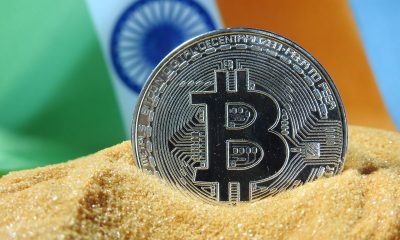Crypto News
India’s Supreme Court asks RBI to respond to exchange’s representation; defers case for two weeks

The ‘IAMAI v. RBI’ case took an unexpected turn after the Supreme Court was met with several arguments from the petitioners’ end about the RBI’s jurisdiction, where the petitioner presented the court with the exchanges’ plea, asking a reconsideration of the ban.
Justice Nariman said,
“Exchanges are not asking to uplift the ban, but they are only asking to reconsider. If you don’t give answer to it, I will pass the judgement”
The hearing going on since morning, continued post-lunch, during which Reserve Bank of India’s counsel, Shyam Divan, presented his arguments proving RBI’s jurisdiction in levying a banking ban in the country with respect to crypto-transactions. He cited a previous judgment of ‘ICICI Bank v. Official Liquidator,’ which explained the provisions of the Banking Regulation Act, provisions which suggest that RBI’s actions under 35A of Banking Act have ‘Statutory Force of Law.’
The counsel further explained that the RBI circular was in line with the statutory provisions declared by the Banking Regulation Act which has to be considered to be having statutory force and the RBI was taking mandatory action under the delegated legislative power it has been conferred under Section 35A of Banking Act and Section 18 0f PSS Act, 2007.
After presenting more judgments in favor of RBI’s decision, Divan answered questions on the vagueness of the circular and said that the RBI has sufficiently described crypto in various documents and that its powers are well-defined and can be exercised where there is a threat to monetary, fiscal and financial policy. As far as regulations of other countries are concerned, the counsel rested his arguments by stating,
“India will make laws as per its needs.”
The stage was then taken by the petitioner Rajdeep Singh & Ors, who claimed that the RBI had changed its stance from caution to prohibition after former Finance Minister, Arun Jaitley’s budget speech in 2018, during which crypto was discussed for the first time. The petitioners added that the RBI had no empirical data to support their stance of crypto being a threat to monetary stability, making its arguments about ‘satisfaction’ baseless.
Justice Nariman questioned Ashim Sood, IAMAI’s counsel, about what he has to say about the point of satisfaction. To the question, Sood responded that the point of satisfaction can be considered only if there is data to substantiate it. He further noted that the RBI cannot take actions on the basis of studies conducted by others and the argument of Ponzi schemes and consumer troubles are just statements, unless they are backed by data.
Sood then turned towards the advisory by the Ministry of Finance where it listed two concerns related to crypto,
1. Its use as payment system and
2. Its use in illicit activities
The counsel made the point that the government was of the view to eradicate or regulate these problems and not to completely ban it. After having a look at the representation filed by the exchanges with the RBI, it was found that the exchanges have said that there was no need for a ban. Instead, the exchanges suggested that Money Laundering Act can be levied upon them or banks can be enjoined in order to make additional requirements for exchanges. RBI’s concerns about crypto was addressed by the exchanges by putting forward suggested measures.
The bench then questioned the RBI about why they did not properly respond to the exchanges’ representation, before forwarding it to the Government? After much deliberation, the Judges’ bench offered to defer the case for 2 weeks as part-heard. The court will discuss this further when the RBI comes with an answer for the exchanges’ plea for reconsideration, while the Solicitor General has been asked to provide the reports/papers mentioned in the IMC within one week.

